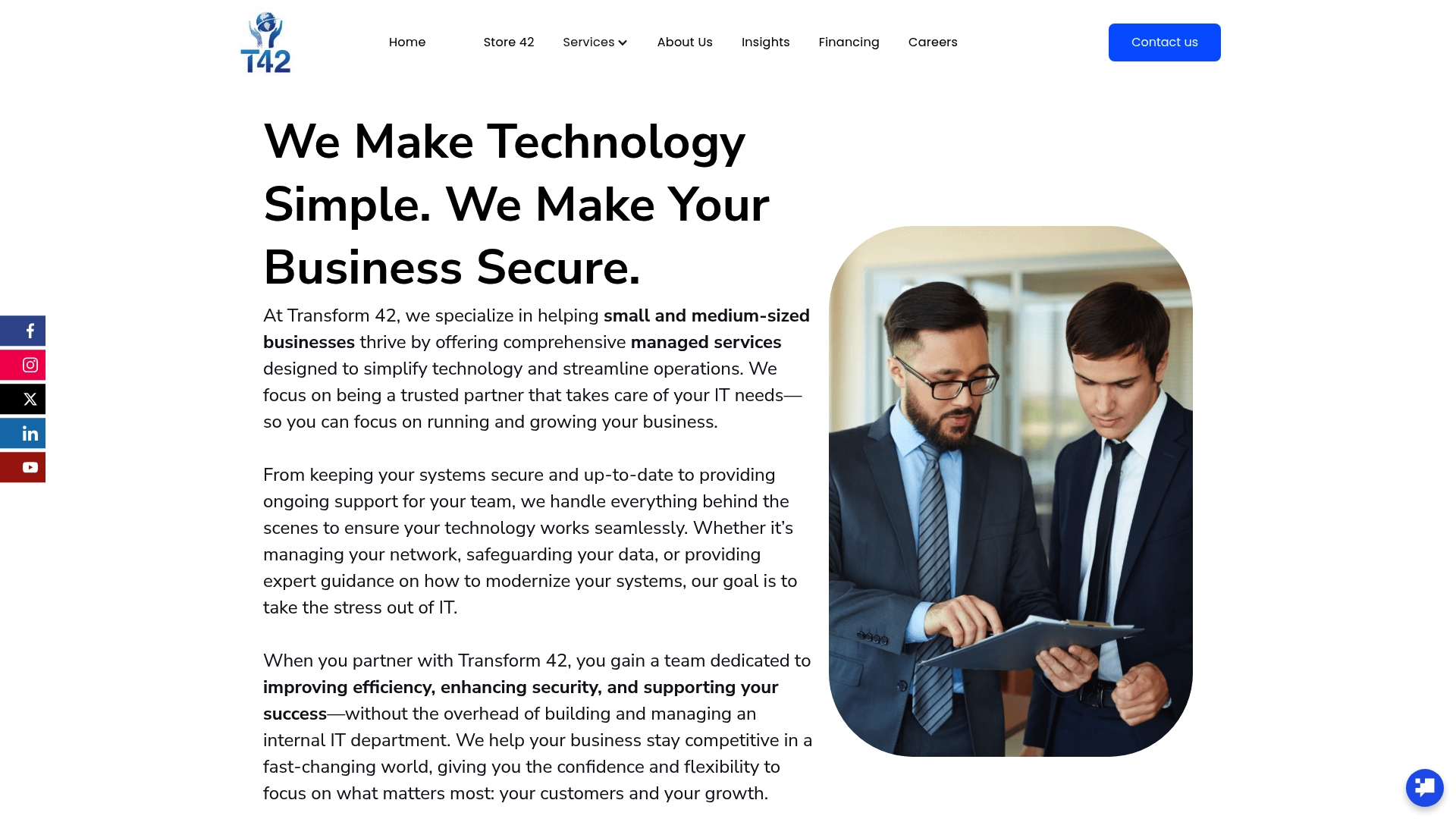
Project management and digital transformation are driving massive shifts in how businesses operate and stay ahead in a tech-heavy world. Nearly 70 percent of digital transformation initiatives fail to meet their stated goals. That sounds like a disaster waiting to happen, right? Surprisingly, the smartest organizations do not avoid these risks. They use project management as a secret weapon to turn chaos into opportunity and outpace their competition.
TakeawayExplanationEffective project management drives digital transformation successProject management is essential for aligning digital initiatives with strategic business goals, ensuring efficient execution and measurable outcomes.Clear vision is crucial for transformationsEstablishing a compelling vision connects digital projects to business objectives and guides teams towards achieving transformation goals.Utilize flexible methodologies for adaptabilityImplementing agile project management techniques enables organizations to quickly respond to technological changes while maintaining structure.Resource optimization enhances transformation investmentsStructured resource allocation helps prevent budget overruns and accelerates implementation, maximizing the impact of digital initiatives.Cross-functional collaboration is key for integrationCoordinated project management across departments facilitates successful enterprise-wide digital transformations and enhances overall effectiveness.
Project management and digital transformation are two interconnected disciplines that drive organizational growth and technological adaptation. Understanding their core principles helps businesses navigate complex technological changes effectively.
Project management is a strategic approach to planning, executing, and completing specific organizational goals within defined constraints. Learn more about digital solutions for managing project complexities. At its core, project management involves:
According to research from the Project Management Institute, effective project management requires a combination of technical skills, leadership capabilities, and strategic thinking.
Digital transformation represents a comprehensive reimagining of how businesses operate, deliver value to customers, and compete in an increasingly technology-driven marketplace. It goes beyond simply implementing new technologies. Digital transformation involves:
The goal is not just technological adoption but creating a holistic approach that integrates digital capabilities across all business functions. By understanding these foundational concepts, organizations can strategically approach technological change and drive meaningful innovation.
Below is a comparison table highlighting the core differences between Project Management and Digital Transformation as defined in the article.
ConceptFocus AreaPrimary ObjectivesKey ComponentsProject ManagementPlanning and executing organizational goalsAccomplish specific objectives within set constraintsScope, resources, team dynamics, tracking, risk mitigationDigital TransformationOrganizational change through technologyReimagine processes, culture, and customer value through digital meansInnovation, emerging tech, customer experience, new models
Project management serves as a critical framework for successful digital transformation, enabling organizations to navigate complex technological changes strategically and efficiently. Without robust project management, digital initiatives risk becoming costly, inefficient, and disconnected from core business objectives.

Effective project management ensures that digital initiatives are not just technological implementations but strategic business transformations. Explore advanced risk management techniques for digital projects to understand how structured approaches can prevent potential challenges.
According to research from the National Center for Biotechnology Information, project management plays a crucial role in digital transformation by:
Project management methodologies provide a structured approach to resource allocation, helping organizations maximize their digital transformation investments. By implementing systematic planning and monitoring, businesses can:
The key is creating a flexible yet disciplined approach that allows for innovation while maintaining organizational control and strategic focus. Successful digital initiatives require more than just technological tools they demand thoughtful, strategic management that bridges technological potential with practical business needs.

Successful digital transformations depend on robust project management principles that go beyond traditional planning and execution. Strategic leadership and adaptive methodologies are crucial for navigating complex technological changes effectively.
Clear vision and strategic alignment form the foundation of effective project management in digital transformations. Learn more about business process innovation strategies to understand how leadership drives meaningful change.
According to research from the Project Management Institute, successful transformations require:
Modern digital transformations demand flexible project management approaches that can quickly respond to technological and market changes. This requires:
The key is creating a dynamic project management environment that balances structured planning with the flexibility to pivot when necessary. Successful transformations are not about rigid adherence to plans but about creating adaptive pathways that enable organizations to leverage technological opportunities effectively.
To clarify best practices, the following table outlines key principles of effective project management for successful digital transformation initiatives, as described in the article.
PrincipleDescriptionClear VisionDefine and communicate a compelling organizational vision for transformationStrategic AlignmentEnsure digital initiatives directly support business objectivesAdaptive MethodologiesImplement agile frameworks that allow for iterative development and rapid response to changeCross-functional TeamsPromote collaboration across multiple departments and functional areasContinuous CommunicationMaintain ongoing feedback and transparent communication throughout the project lifecycleLeadership CommitmentSecure active engagement from leaders at all levels
Project management plays a crucial role in translating digital transformation strategies from theoretical concepts into practical, actionable implementations. By providing structured approaches and strategic frameworks, project management enables organizations to navigate complex technological changes effectively.
One of the most critical real-world applications involves modernizing legacy technology infrastructure. Explore digital transformation strategies for complex organizational environments to understand how systematic approaches drive technological evolution.
According to research in the TECHNO REVIEW journal, successful technology infrastructure transformations typically involve:
Enterprise digital transformation requires coordinated project management across multiple departments and technological domains. Successful integration demands:
Effective project management serves as the critical bridge between technological potential and organizational capability. By providing structured methodologies, clear communication channels, and adaptive strategies, project managers transform complex digital initiatives into tangible business value. The goal is not just implementing new technologies but creating a holistic, integrated digital ecosystem that drives organizational innovation and competitive advantage.
Struggling to align your digital transformation goals with real results? As explored in this article, successful project management is essential for turning ambitious strategies into smooth, results-driven processes. Without it, accounting firms like yours in Miami can face wasted resources, miscommunications, and even compliance setbacks during critical business moments.

Transform 42 specializes in bridging the gap between technology promise and practical business success for local accounting firms. Our experts ensure your digital initiatives stay on track with proactive planning, measurable goals, and compliance-focused solutions. Ready to eliminate IT headaches and protect your firm, especially during deadline-driven seasons? Visit Transform 42 now and discover how our managed IT services transform chaos into clarity. Your next worry-free peak season starts today.
Effective project management is crucial in digital transformation as it ensures that technology initiatives are aligned with business objectives, mitigates risks, and optimizes resource allocation, leading to successful implementation and integration of new technologies.
Project management helps mitigate risks by establishing clear communication among teams, setting measurable performance indicators, creating accountability, and maintaining strategic alignment throughout the digital transformation process.
Key principles include having a clear vision aligned with strategic business goals, using adaptive methodologies, promoting cross-functional collaboration, and ensuring continuous communication and feedback mechanisms to navigate complex changes.
Organizations can ensure success by implementing structured project management methodologies, fostering communication across departments, and developing agile approaches that can adapt to ongoing technological and market changes.